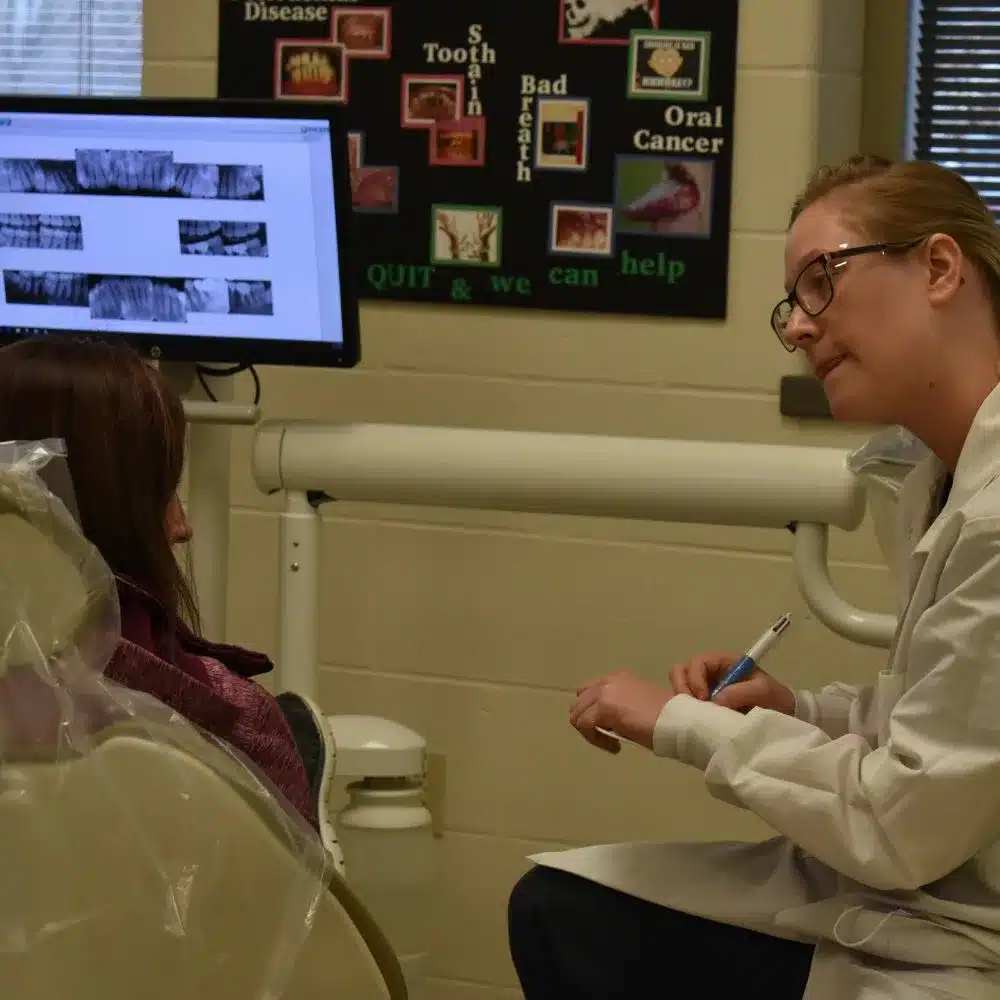Dental
Why Choose HOC for Your Dental Hygiene Needs
At HOC, our skilled dental hygienist is dedicated to enriching your quality of life by providing specialized education to fit your needs. We understand that having a bleeding disorder doesn’t automatically mean dental issues, but neglecting preventive care could lead to oral bleeding complications. With our expertise, we offer excellent dental education in a supportive, safe environment to help you stay on top of your oral health.
Service Overview: Dental Care for Bleeding Disorders
Our dental hygienists are committed to enhancing your overall well-being by focusing on preventive dental care education. We understand that dental concerns are prevalent in the bleeding disorders community, so we have made it our mission to address this important aspect of your health. We offer dental health assessments and access to free dental cleanings for individuals with bleeding disorders through our partnership with Northeast Wisconsin Technical College’s (NWTC) Dental Program.
Our partnership with NWTC offers individuals with bleeding disorders a unique opportunity to receive free dental cleanings, promoting optimal oral health. Moreover, it serves as a valuable learning experience for dental hygiene students, allowing them to apply their knowledge and skills in caring for “higher-risk” patients with bleeding disorders. Under the close supervision of their instructors and one of HOC’s Nurse Coordinators, these students gain invaluable hands-on experience, contributing to the overall well-being of our community members.
Proactive Care with your Established Dental Provider
At HOC, we believe that laying a solid foundation of dental education is the cornerstone of lifelong well-being for individuals with bleeding disorders. By prioritizing preventive measures, we empower you to take charge of your health and reduce the risk of complications. We can also help you find dental care options.
Empowering a Life Beyond Your Bleeding Disorder
All Services
Testimonials
"True sense of community"
The HOC has been such a tremendous support for me and my family. I have been going to the HOC for 30+ years, and continue to go with my two daughters that both have Von Willebrand’s Disease...."Incredibly caring, compassionate, and knowledgeable"
Everyone at the Center is incredibly caring, compassionate, knowledgeable and makes for seamless care between other offices and hospitals. We feel very blessed to have such a great group so close to us to help us ..."Genuine passion for quality care"
There is a genuine passion for quality care that everyone at HOC has for each of us as patients, and for the patients’ families. The care we receive from the nurses and doctors for our bleeding disorders...CARE WITH COMPASSION
Frequently Asked Questions
How can I schedule a dental hygiene assessment at HOC?
You can schedule a dental hygiene assessment by contacting our center. Our team will be happy to assist you in setting up a convenient time for your visit.
What should I expect during a dental assessment at HOC?
Why is dental hygiene important for individuals with bleeding disorders?
Our Care Teams
Green Bay →
Wausau →
Book Your Appointment Today
If you or a loved one is living with a bleeding disorder, reach out to HOC for personalized care that goes beyond clinical treatment. Our team of experts will work with you to develop a comprehensive care plan that addresses your unique needs and helps you live your best life.




